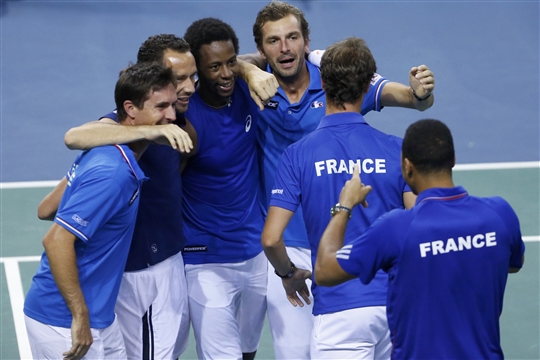Seb's blog - Nov 17
Thu, 30 Nov 2017 00:00

Golden generations gone wrong.
In the late 90’s and early 2000’s the French tennis team was hailed as a “golden generation”. The players were predicted to be a massive success in senior level on the ATP tour. These junior tennis players were packed to the rafters with stars in the making – Paul-Henri Mathieu, Nicolas Mahut, Jeremy Chardy, Gilles Simon, Gael Monfils, Jo-Wilfried Tsonga, and not to mention Richard Gasquet who, at 16 defeated at Monte-Carlo a certain number one in the world called Roger Federer!
So fast forward a decade and what did this players achieve overall. Well, not as much as predicted. In contrast some of the players failed to establish themselves in the top 50. Needless to say, as a collective they fell short of the predictions of success…
So is this a unique scenario? Were France just unlucky? Well if you look at the history books – they would suggest no. Gasquet, Monfils, Tsonga... won Junior Slams but how many junior slams winners converted their success onto the ATP tour?
Surely performance at U20 level are a good measure of future success? So what’s going wrong with these players???!
Well in a nutshell – nothing. The failure of these players to achieve expectations set upon them is because these expectations are unfounded. They are based upon the assumption that success at a junior level, is a good precursor of senior level. If you hold this particular view you may be in for a shock.
Junior success in any sport (other than early specialisation sports like gymnastics) is a fairly unreliable predictor of long term success. Yes there are always one or two starlets who are the exceptions to the rule, but generally it’s poor. In fact there has been some interesting research backing this perspective up. This study by Foss and Chapman investigated the premise that Junior level (U20) success translates into senior level success. They did this by analyzing career progressions of junior and senior elite track and field athletes. This study had some interesting results – Senior Olympic finalists achieved their best performance at a much later age than Junior level finalists (average age of 25 vs 21). This was pretty consistent across all the events they tracked. They also found that successful Junior level athletes progressed significantly less than those successful at the Senior level. Their conclusion was that success at Junior level does not determine success at Senior level.
Sadly, this study is not an isolated case. A similar study was produced by Hollings, Mallet and Hume who followed 11 athletes representing New Zealand who made the final of their respective events at the World Junior Athletics Championships between 1992 – 2006. Of the 11 athletes – 5 made won a medal or made the final at a Senior Athletics Championship or Olympic Games. The other 6 failed to represent their nation at a Senior level. This was explained by a lack of progression and the balance of competing demands and tensions. This is a pretty stark contrast – nearly half made the final at senior world level, whilst the other half failed to even make the step up to senior level.
So what’s the take home message here? Well both studies suggested that failure to succeed at the senior level was due to lack of progression/improvement, as well as managing various stressors during transitional period, not to mention differencing in maturation rates.
So in conclusion:
- Junior level results have little carryover to senior level
- Focus on progression/improvement
- Invest in the processes of a good performance rather than the outcomes (winning)
- Help your athletes manage their various stressors during the transition from junior to senior level
If you manage to do these things you’ll be doing the right things by your athletes and increasing the likelihood of success in the long-term!
I hope this has been informative and helpful!
For the latest content please like our Facebook page here.